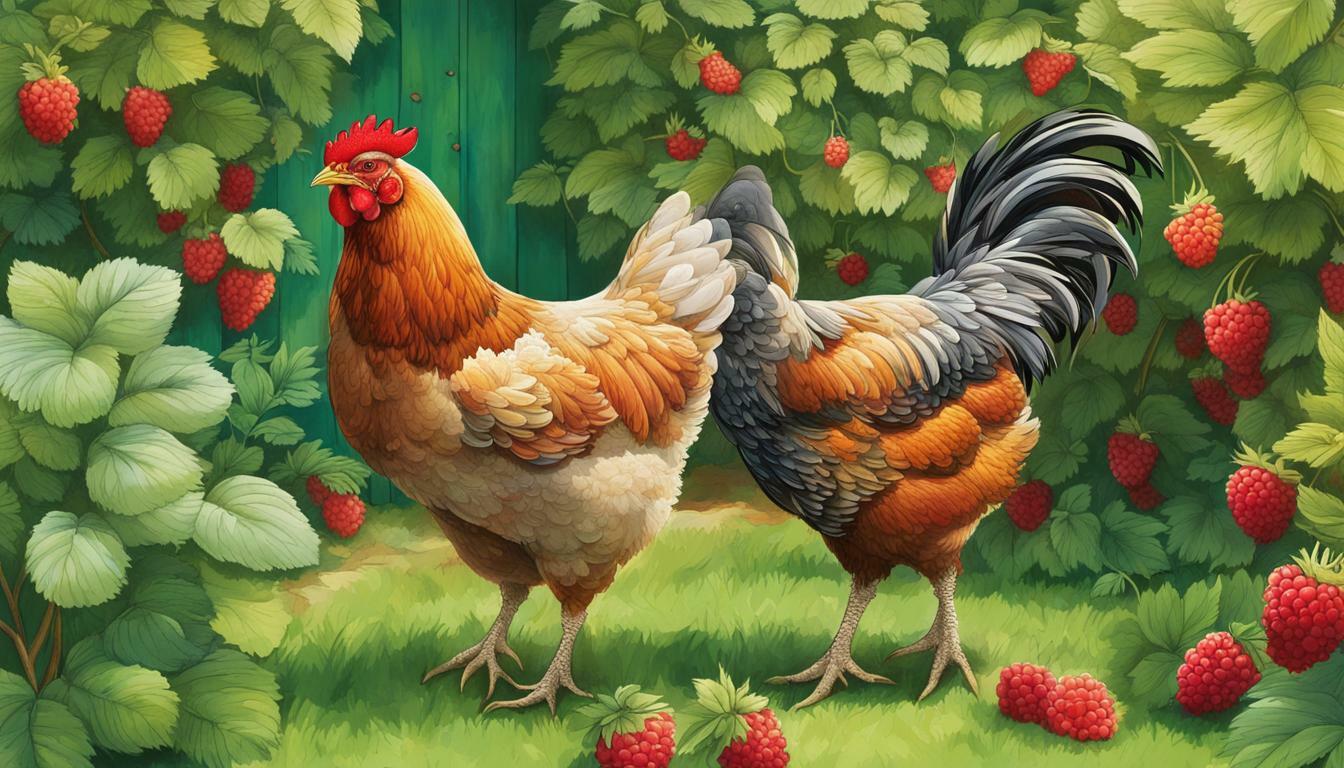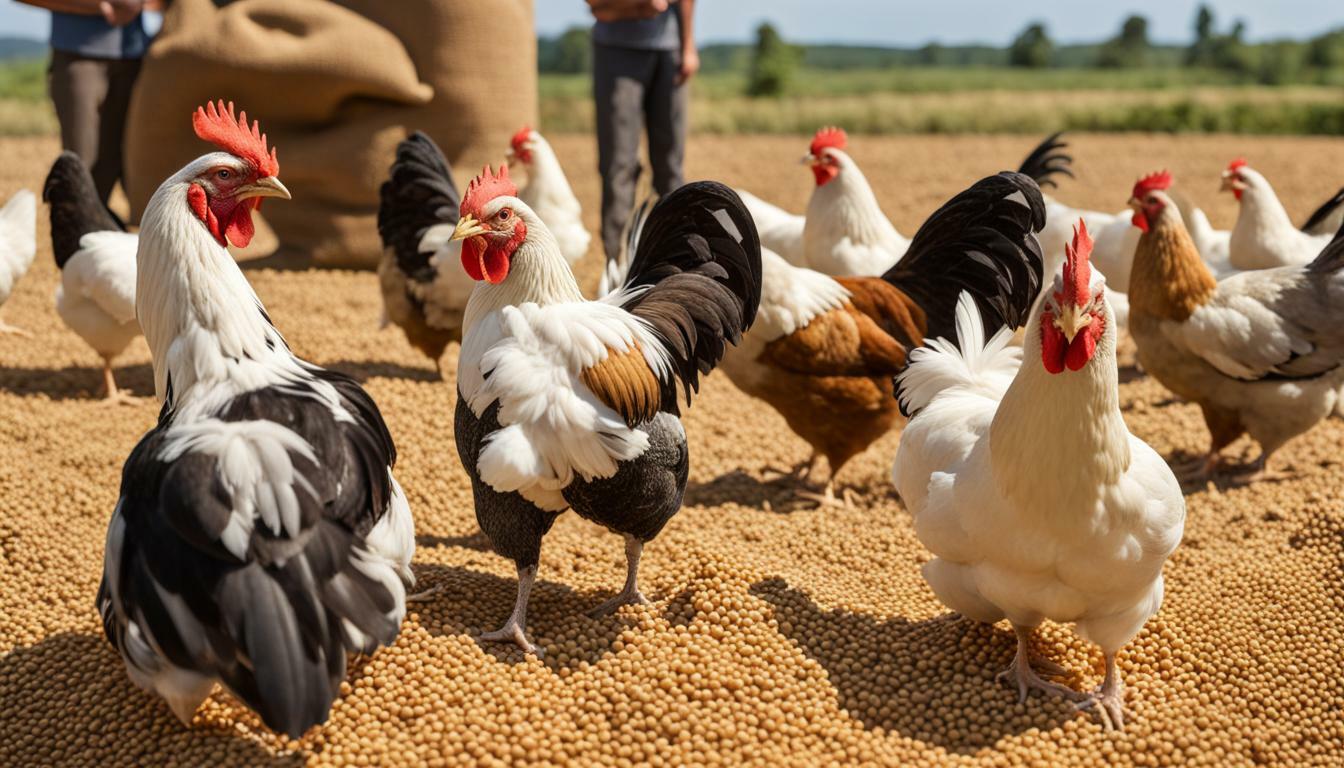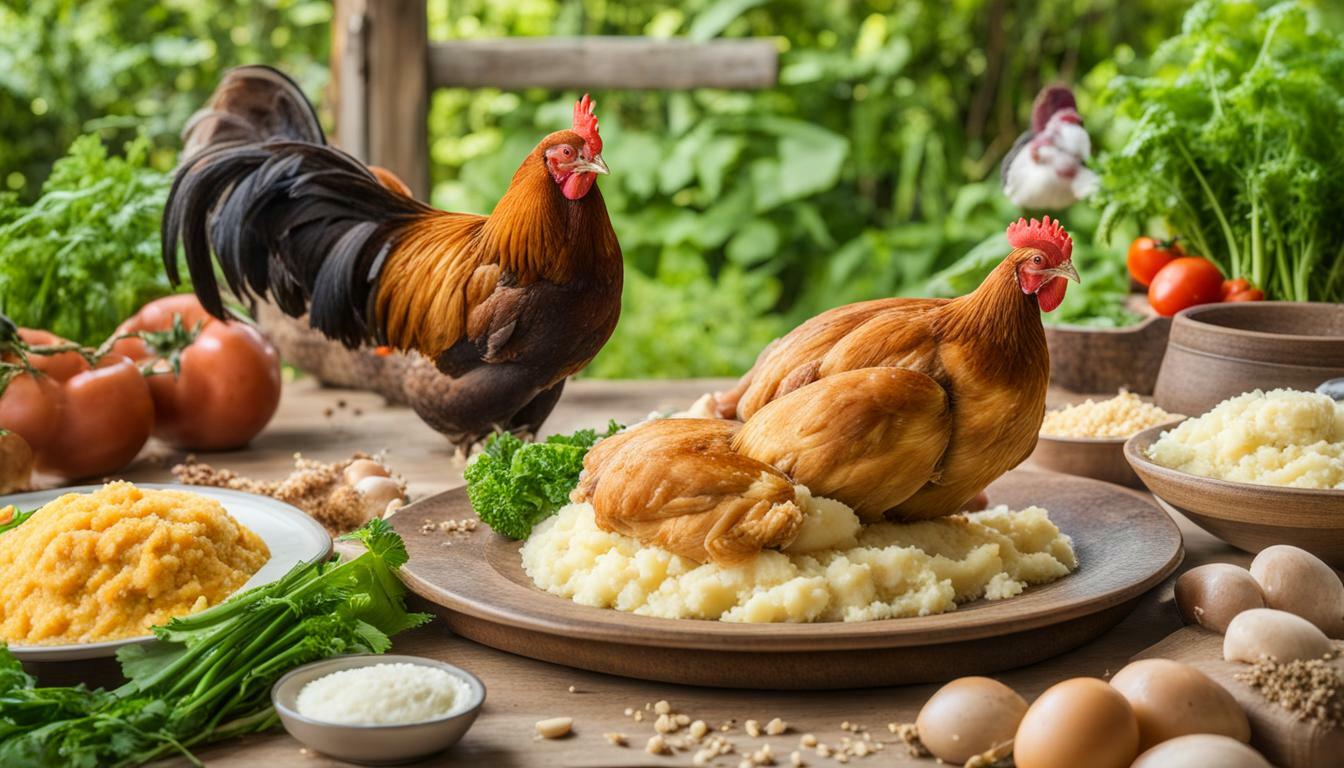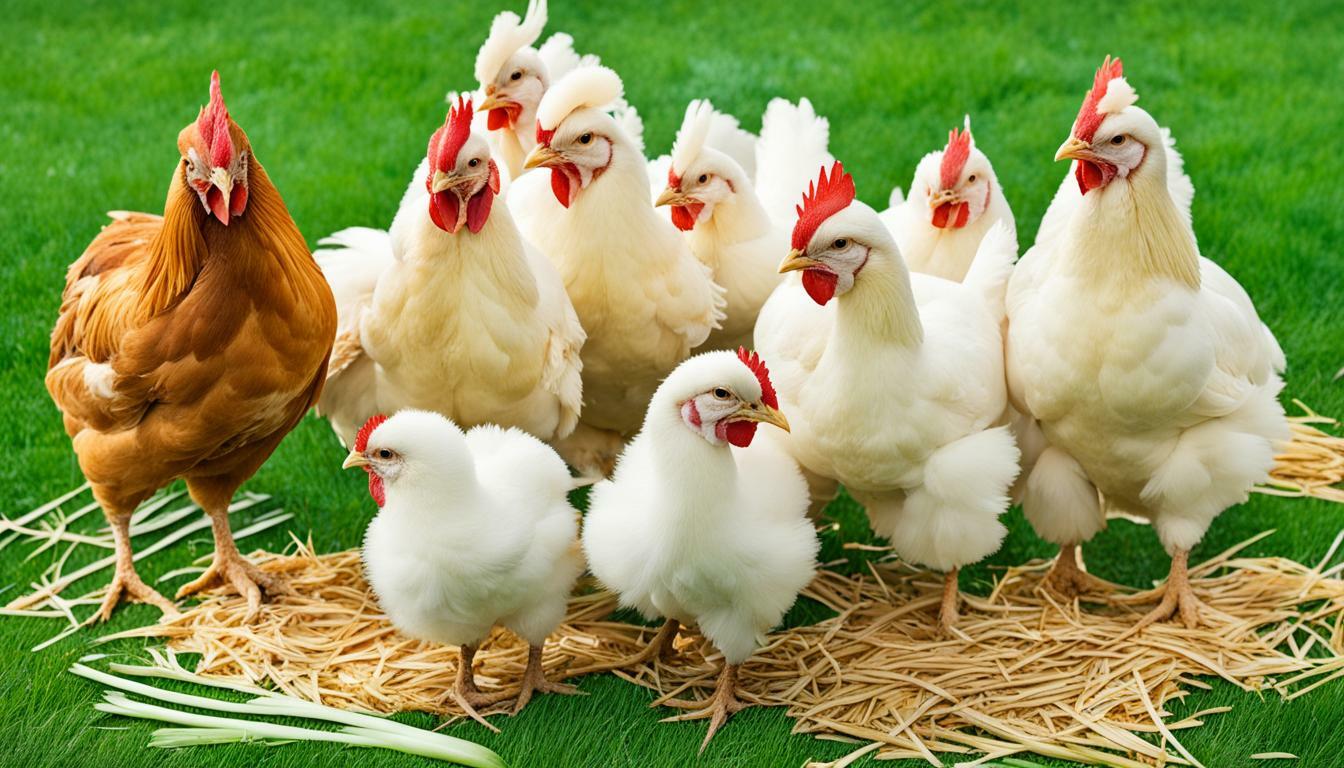Can Chickens Eat Raspberries? Safe Treats for Hens Explained

Table of content:
- Are Raspberries Safe for Chickens to Eat?
- What Fruits Can Chickens Eat?
- How Many Raspberries Can Chickens Eat?
- Do Chickens Like Raspberries?
- Are Raspberries Good for Chickens?
- Can Chickens Eat Raspberry Plants?
- Can Baby Chicks Eat Raspberries?
- What Are the Benefits of Feeding Raspberries to Chickens?
- Are There Any Dangers to Feeding Chickens Raspberries?
- Conclusion
Raspberries are a tasty, nutritious fruit that can make a great occasional treat for chickens. However, chickens should only eat raspberries in moderation. Read on to learn more about whether raspberries are safe for chickens and how to offer them as part of a balanced diet.
Are Raspberries Safe for Chickens to Eat?
Raspberries are generally considered safe for chicken consumption. Most berries do not contain any toxic compounds that could harm chickens. However, it’s still important to feed raspberries in moderation.
Like most fruits, raspberries contain a good amount of natural fruit sugars. Consuming too many raspberries could potentially cause loose droppings or diarrhea in chickens. So it’s best to offer raspberries just as an occasional treat.
Raspberries also contain small seeds that chickens will ingest. While the seeds don’t pose a toxicity risk, they could potentially cause a bit of gastrointestinal upset if a chicken eats a large quantity.
As always, introduce new treats like raspberries slowly and watch for any signs of a negative reaction. Start with just a few berries at a time and gradually work up to larger portions.
What Fruits Can Chickens Eat?
Chickens can eat a variety of different fruits in moderation. Some other safe fruits for chickens include:
- Apples – A great source of vitamins A, C, and K. Remove stems and seeds first.
- Blueberries – Packed with antioxidants and vitamin C.
- Cantaloupe – Provides vitamin A and potassium.
- Grapes – Offer seedless varieties chopped into small pieces.
- Oranges – Full of vitamin C. Peel them or offer sliced segments.
- Pears – A good source of fiber. Cut into bitesized pieces.
- Pineapple – Contains bromelain, an anti-inflammatory enzyme. Remove skin first.
- Watermelon – Made up of mostly water, so helps with hydration.
Fruits should make up no more than 10% of a chicken’s total diet. Offer fruit as a supplement to a quality layer or flock raiser feed.
How Many Raspberries Can Chickens Eat?
When feeding raspberries or any fruit treat, moderation is key. A good rule of thumb is to limit fruit to 1-2 tablespoons per chicken per day.
For a standard sized raspberry, one berry is around 5-6 grams. So for a typical hen, 5-10 raspberries once or twice a week makes a nice treat. Adjust quantities based on the size and number of birds in your flock.
Larger flocks can enjoy raspberries by scattering a handful or two out in the run area. This allows the chickens to forage for the treats and prevents any issues with chickens fighting over a limited dish of fruit.
Do Chickens Like Raspberries?
Most chickens do enjoy the taste of sweet fruits like raspberries. The sweet flavor and juicy texture are quite appealing.
Offering treats like raspberries provides environmental enrichment. It gives the flock something different from their regular feed and allows them to exhibit natural pecking, scratching and foraging behaviors.
Free-range and pastured chickens may already be quite accustomed to finding berries and fruits while out roaming. But even confined flocks appreciate a chance to try new and tasty foods.
Start by offering just a few raspberries and see if your flock enjoys them. Try scattering them in different areas to encourage natural foraging.
Are Raspberries Good for Chickens?
Raspberries do provide some beneficial nutrition for chickens. Here are some of the main vitamins, minerals and nutrients in raspberries:
- Vitamin C – Supports immune function and antioxidant activity.
- Folate – Important for DNA synthesis and amino acid metabolism.
- Manganese – Involved in bone formation.
- Magnesium – Helps with protein synthesis and nerve function.
- Iron – Carries oxygen through the bloodstream.
- Fiber – Promotes digestion and gut health.
- Antioxidants like anthocyanins, ellagic acid and gallic acid – Help reduce inflammation and oxidative damage.
The fiber and antioxidants make raspberries particularly beneficial by supporting overall chicken health and immunity. The vitamins and minerals also contribute to bodily processes like growth and egg production.
While raspberries provide useful nutrition, they should not replace a complete feed formulated to meet all of a chicken’s dietary needs. Offer raspberries occasionally as a supplement to a quality layer or flock feed.
Can Chickens Eat Raspberry Plants?
Along with the ripe berry fruits, chickens can eat other parts of the raspberry plant in moderation.
The shoots, canes and leaves offer some fiber and nutrients. Just don’t allow the flock to strip canes completely bare, as the plant will need leaves for photosynthesis and berry production.
Limit intake of raspberry foliage, as it does contain small amounts of hydrogen cyanide. The cyanide is bound to sugar molecules, but chickens could potentially release and absorb some hydrogen cyanide if they eat very large quantities of raspberry leaves.
Raspberry plants also contain oxalic acid in the leaves, which can bind to calcium. While occasional small portions of leaves are fine, eating large amounts could inhibit calcium absorption.
So allow chickens to nibble foliage, but don’t rely on raspberry plants as a main source of food. Offer a quality balanced feed and provide raspberry plant parts just for supplemental variety.
Can Baby Chicks Eat Raspberries?
Once baby chicks are 2-3 weeks old, they can start to eat treats like raspberries in very small quantities. Avoid offering any fruits before 2 weeks of age.
The delicate digestive system of newly hatched chicks requires a special starter feed. Offer chick starter which provides complete nutrition for growth and development.
At 2-3 weeks old, chicks can handle small bites of soft fruits like seeded grapes, bananas, cantaloupe and berries. For a few raspberries, chop them into tiny pieces that a chick can easily swallow.
Increase the quantity slowly over time as the chicks grow. By 6-8 weeks old, chicks should be able to handle whole raspberry fruits. But continue to offer fruit only as a supplemental treat a couple times a week, not as a meal replacement.
What Are the Benefits of Feeding Raspberries to Chickens?
Raspberries provide antioxidants, vitamins and fiber that contribute to chicken health. Specific benefits may include:
- Strengthened immunity
- Healthier digestion
- Improved feather condition
- Increased energy and activity levels
- Supported bone strength
- Overall greater vitality
Offering treats also provides environmental enrichment for the flock. Raspberries encourage natural foraging behavior and satisfy a chicken’s food exploration instinct.
Scattering raspberries in the coop or run prompts movement and exercise. This helps ward off lethargy and boredom in confined flocks.
So while raspberries are only a supplemental food, they do offer nutritional value. And the process of eating raspberries benefits chicken behavior and well-being.
Are There Any Dangers to Feeding Chickens Raspberries?
There are a few things to be aware of when feeding chickens raspberries:
- Possibility of loose droppings if consumed in excess
- Potential for crop impaction if chickens eat raspberry stems
- Risk of inviting pests like rodents or foxes if fruit is left uneaten
- Could lead to obesity if substituted for complete feed
- May result in decreased egg production or growth if nutrition becomes unbalanced
With proper precautions however, these risks are easily avoided. Offer raspberries in moderation, remove stems, don’t leave uneaten fruit sitting out, and continue providing a quality complete feed.
Some people worry about salmonella risk associated with raw fruit and poultry. But salmonella contamination from backyard flock raspberries is very rare. Simply practicing good hygiene by washing hands after handling fruit is sufficient.
In reasonable quantities, the nutritional benefits of raspberries appear to outweigh any minor potential dangers. Overall, raspberries are a safe, nutritious treat for backyard chickens.
Conclusion
Raspberries can be a healthy part of a balanced diet for chickens. Offer them in moderation as an occasional treat. Limit portions to a tablespoon or two per chicken per day. Remove stems before feeding whole raspberries. Scatter small handfuls in the run for enrichment.
While raspberries provide benefits like antioxidants and fiber, they should not make up a large proportion of a chicken’s diet. Continue to feed a complete layer or flock feed according to manufacturer recommendations as the dietary foundation.
With a few precautions, raspberries make a fun, nutritious supplemental food that most backyard chickens will enjoy. Offer your flock this berry treat and see them eagerly pecking away for raspberry goodness!
Welcome. I’m Adreena Shanum, the proud owner of this website, and I am incredibly passionate about animals, especially poultry. I founded adreenapets.com as a labor of love, stemming from my desire to share my knowledge and experiences with poultry enthusiasts worldwide.




